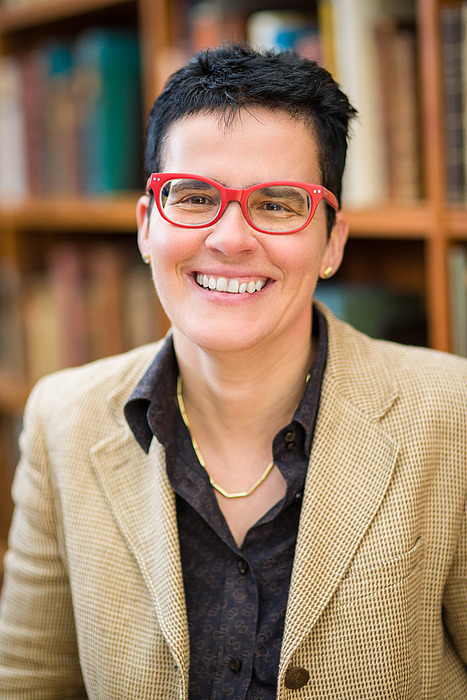Uncovering 80 Years of Research into the Near and Middle East at IAS, a Public Lecture by Sabine Schmidtke
Press Contact

Sabine Schmidtke, Professor in the School of Historical Studies, will give a public talk on Friday, October 12. Drawing on her research and reading from her recent publication Studying the Near and Middle East at the Institute for Advanced Study, Princeton, 1935–2018 (Gorgias Press, 2018), the talk will explore an area of scholarship that has been continuously represented at the Institute since 1935. The event is sponsored by the Friends of the Institute and will take place in the Dilworth Room at 5:30 p.m. on the Institute campus followed by a book signing.
The recently published volume opens with a historical sketch by Schmidtke, followed by essays and short studies by IAS scholars, past and present—Faculty, Members, and Visitors; mathematicians, social scientists, and historians. Their contributions span ancient Near East and early Islamic history, the Bible and the Qurʾān, Islamic intellectual history within and beyond denominational history, Arabic and other Semitic languages and literatures, Islamic religious and legal practices, law and society, the Islamic West, the Ottoman world, Iranian studies, the modern Middle East, and Islam in the West.
Sabine Schmidtke is a scholar of Islamic intellectual history whose pioneering research has transformed perspectives on the interrelations and connections among different strands of intellectual inquiry, across time, place, religions, and philosophical schools. She has played a central role in the exploration of heretofore unedited and unknown theological and philosophical writings. Schmidtke has applied rigorous study to the edition and critical analysis of manuscripts in Arabic, Judeo-Arabic, and Persian, and her work extends from Arabic-speaking countries to Israel, Iran, Russia, and Turkey. Schmidtke is currently working on the history of Islamic thought in the post-classical period (13th to 19th century), with a focus on reconstructing the textual heritage and the intellectual import of the Islamic intellectual world, from Iran and Central Asia to Turkey and Yemen. She is also engaged in a comprehensive study of the Muslim reception of the Bible, a topic on which she has published extensively over the past years.
This event is free and open to the public, but registration is required. To register for this event, visit https://www.ias.edu/events/friends-publiclecture-schmidtke. For more information on public lectures and events at the Institute, visit www.ias.edu/events.


